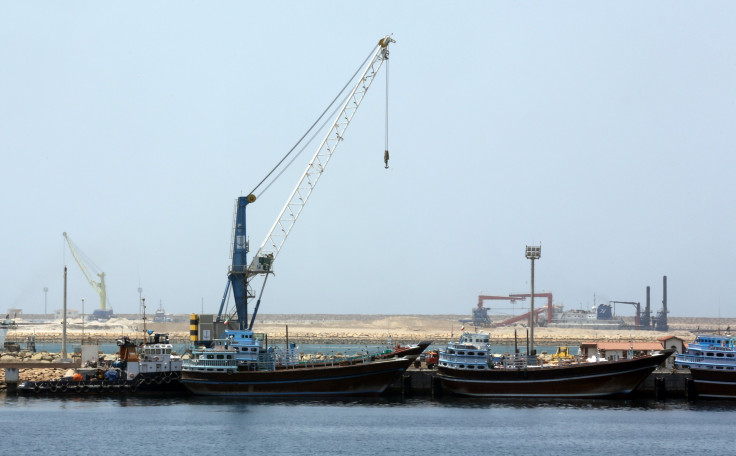India, Iran Aim To Expedite Development Of Chabahar Port After Resolving Key Issues

Indian Prime Minister Narendra Modi and Iranian President Seyyed Ebrahim Raisi recently agreed on amplifying the development of the Chabahar Port to enhance bilateral cooperation between the two countries. The two leaders discussed the potential of Chabahar port as a vital trade gateway, as it connects India to Afghanistan and Central Asia while bypassing Pakistan.
"The two leaders reiterated their commitment to further strengthen bilateral cooperation including to realize the full potential of Chabahar Port as a connectivity hub," the Indian Prime Minister's Office said in a press release last week.
Pleased to speak to Iranian President H.E. Dr. Seyyed Ebrahim Raisi yesterday. We discussed strengthening of bilateral and regional cooperation, including realising the full potential of Chabahar Port. Look forward to meeting President Raisi in South Africa on the sidelines of…
— Narendra Modi (@narendramodi) August 19, 2023
Located in southeastern Iran, Chabahar Port is a key focal point for India's endeavors to strengthen connectivity and trade with the region. The two nations aim to leverage the capabilities of the port to foster economic growth and stability in Afghanistan and beyond. It further aligns with India's broader goal of the International North-South Transport Corridor (INSTC), which aims to institute effective trade routes that link the Indian Ocean to the Caspian Sea.
India Ports Global Ltd. (IPGL) and Aria Banader Iran (ABI) originally signed a contract worth $85 million in 2016 to develop the port, along with a $150 million line of credit. So far, India has supplied six gantry cranes worth $25 million for the development of the port.
However, several issues came up between Iran and India, including severe economic sanctions by the U.S. on Iran, technical and bureaucratic dilemmas on both sides, and the private sector's apprehensions to invest in Tehran, which resulted in a delay in the construction of the port, according to a report by the Manohar Parrikar Institute for Defence Studies and Analyses (MP-IDSA).
At the same time, China has been showing increasing investment interest in ports and other coastal infrastructure in Iran.
With Tehran expressing dissatisfaction with the pace of work by Indian companies at Shahid Beheshti Terminal in Chabahar, the two countries have been trying to resolve the differences and step up work at the port.
"In recent years, India has made a push for integrating Chabahar port with the eastern branch of the INSTC linking Central Asian states to Iran over to India. With the Russia-Ukraine war and the sanctions disrupting the east-west transit to Europe via Russia, and Iran's membership of the SCO, Central Asian states are increasingly looking at Iran for both east-west transit to Europe and north-south connectivity along the INSTC," Dr. Deepika Saraswat, Associate Fellow at Manohar Parrikar Institute for Defence Studies and Analyses, told International Business Times. "As a result, both New Delhi and Tehran have reasons to accelerate their cooperation on Chabahar."
A long-term agreement remained held up due to jurisdiction over the arbitration clause in the deal. However, India and Iran recently agreed not to seek commercial foreign arbitration to resolve disputes between users and operators at Chabahar Port, an Indian newspaper reported, citing people close to the matter.
The report added that a team from the Indian Ministry of Port and Shipping is expected to visit Iran in September in an attempt to finalize the agreement.
In June, Ali Akbar Safaei, the head of the Iranian Ports and Maritime Organization, said that disagreements with the Indian operator at Chabahar Port had been cleared up, and a contract would soon be signed between the two nations, according to the Silk Road Briefing. However, there was no clarity on when the deal would be signed.
After resolving looming issues, India and Iran are expected to sign a long-term deal for the development of the Chabahar Port by September.
© Copyright IBTimes 2024. All rights reserved.





















